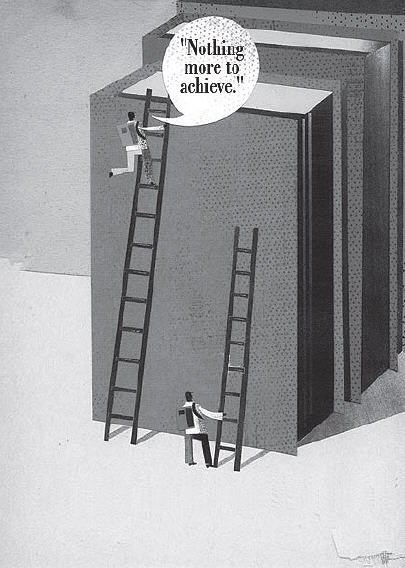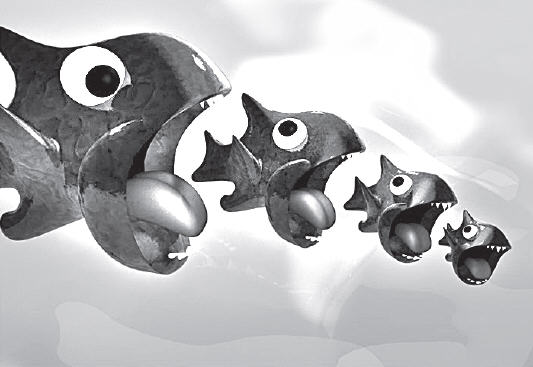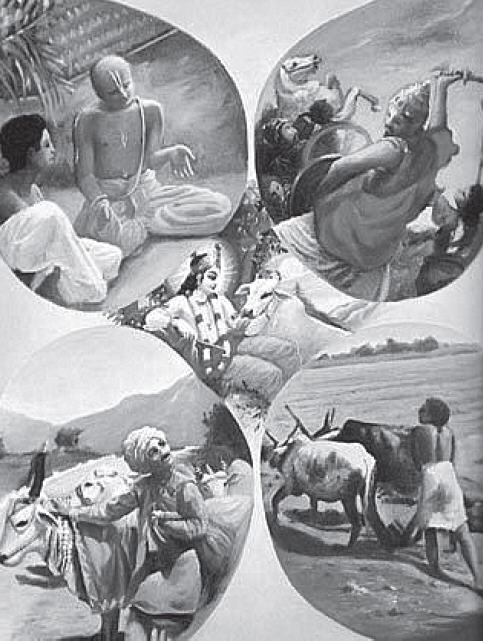It seems the evils of the caste system will continue to remain in some form or another despite all attempts to abolish the age-old custom.
In today's India, we often hear about certain sections of society being abused or mistreated by upper caste members on the basis of caste and birthrights. The media frequently reports how dalits, a class of people who were for centuries considered untouchables, are constantly harassed and oppressed by persons of higher caste. Not a month passes without the media's reporting such incidents of social and economic oppression, deprivation of basic rights, physical assaults including rape and murder, tardy action by the police, and so on. And most cases that occur in remote rural areas do not come to light at all.
Post-Independence India has come a long way in raising the standard of all oppressed classes of people in society by abolishing the caste system and by trying to implement the rights and privileges listed in the Constitution. Most educated and sensitive Indians consider that the caste system was ill-conceived and counter-productive. As we move into flatter social structures brought about by democracy, the information age, cultural intermingling, the empowerment brought about by education, and supposedly reduced economic disparities in materially advanced societies, we question the need or logic of this social classification.
Modern Society – Is It a Classless Society?
Political amendments, secular education, and media propaganda might have abolished the birth based caste system in India, but has it eliminated social disparities altogether?
In India, a country where more than 450 million people live in poverty, around 50 billionaires account for 20% of the GOP and 80 percent of stock market capitalization, according to a 2009 Asian Development Bank report. And by 2015, according to a World Bank report, an estimated 53 million people will live under extreme poverty. The USA, known for its passion for liberty and equal rights, is now witnessing a steady decline in financial parity. According to a 2007 study by the Pew Research Center, almost fifty percent of Americans feel that the country is divided along economic lines.
When India achieved independence, the government introduced reservations in educational institutions for persons belonging to oppressed castes, so that unequal economic progress could be somewhat moderated among all sections of society. Although the caste system has now become officially extinct, successive governments seeking political brownie points continue to increase the quota on reservations. As a result, reserved category candidates occupy nearly 52% of government jobs today. Sixty-five years after independence, people in the general category feel that they are being handicapped and subjugated. Regardless of merit, they face discrimination while seeking jobs.
Classless Society – A Utopian Dream
Though the caste system has caused various kinds of deprivation through the ages, the less privileged classes exist today in almost all the countries of the world. Economists, social scientists, philosophers, writers and poets have long talked about a utopia wherein every person has equal rights and responsibilities, and equal possessions, wherein no one is too rich or too poor, and everyone lives in peace, harmony and equality. Karl Marx, in his thesis, Des Kapital, propounded his version of utopia, by advocating a single classless society and the means to attain it. His vision was almost poetic, and his intentions were unquestioned. But was his concept of a utopian society perfect or workable?

The rise and fall of the Soviet Union in the twentieth century, and the authoritarian regime we see in present day China belies all protestations of a homologous classless society. There are deep divisions in Chinese society on the basis of socio-economic imbalances they have failed to address so far, in spite of rapid economic growth. Today, if you visit Shanghai or Beijing, China's showcases to the world, you are not likely to spot a single Chinese farmer or workman, because these poorer sections of Chinese society do not deserve to be spotted by foreign tourists. And for good reason: they might just explode the image that China wants to project to the world: "All is well" Rural communities are ruthlessly put down in various isolated and far-flung pockets of that vast country to give way to the diktats of party bosses, in the name of development and greater good for the greater number, a concept perpetuated by the existing system. The case of the Chinese artist Ai Weiwei, for having publicly questioned the system and its various delinquencies, is a pointer to such to such mistreatment.
In Animal Farm, a brilliant satire penned by George Orwell, the animals, fed up with the perennial persecutions of their master, the farmer, and their hunger and
abject conditions, revolt and throw
out the farmer from the farm, and begin to run the farm themselves. Their revolution is successful. The catchphrase of the revolution is:
"All animals are equal." But as the
years pass,
the more cunning animals, the
pigs, begin to dominate the others and to ill treat other animals just like the farmer had done before them. They very cleverly change the slogan of the revolution to: "All animals are equal, but some animals are more equal than others." There can be no more eloquently scathing assessment of the communist experiment than this punchline by George Orwell.
Even in capitalist societies, the privileged classes have the best of everything, while persons from the lesser backgrounds struggle or are victimized or become second class-citizenson account of background. The law of the jungle applies, though might is replaced by money or political power.
In utilitarian traditional Islamist countries, social and economic disparities have crept in and stabilized over the centuries, creating great divides between rich and poor. The popular revolts and subsequent repressions across the Arab world are eye-opening. A classless society, though aspired to, does not exist anywhere in the world.
Caste System and Class System

Hierarchy and designations continue to exist in modern society in some form or another – in terms of monetary reward or authority. A large business enterprise needs multitudinous persons, having different sets of skills, working in harmony towards realizing its goals. Similarly, different parts of the human body work in close cooperation to maintain it in good health and well being. The body cannot be well if any organ or part is unwell. The head, arms, stomach, liver, legs – each has a specific function to perform and cannot do another's job. When disparate organs do their work perfectly, in coordination, the body is in sound health.
In the Bhagavad-gita (4.13), Lord Krishna states: "According to the three modes of material nature and the work ascribed to them, the four divisions of human society were created by Me." Let us note that this classification is based not on birth but on the qualities, consciousness, and abilities of an individual. The Vedic system of dividing society based on an individual's abilities and consciousness, known as the daivi-varnashrama institution, is directed towards re-awakening humanity's loving relationship with God, the ultimate goal of life. Historically, the brahmanas, the head of the social order, would provide vision and direction to society. Although they were at the pinnacle, they led a simple and austere life and never exploited their position. The kshatriyas were royal kings and administrators, working under the brahmanas and respectfully accepting their advice in all matters of state. They were heroic, religious, and charitable. The vaishyas were the mercantile community, entrusted with agriculture and cow protection, and engaging in fair trade and commerce, without resort to corruption. The shudras were laborers who assisted the other three classes by providing support. Every individual worked towards common goals – a self-sustaining, just, and spiritually enlivened society.
Over time, the brahmana class gradually became easygoing, being sustained by society, and they lost the requisite brahminical qualifications, degrading themselves into brahma-bandhus, or disqualified brahmanas. Subsequently, other sections of society also deteriorated from the social standard of progressive life. In due course, classes became castes. Individuals began to be labeled on the basis of birth rather than individual characteristics. In time, this mutation from social class based on individual abilities was transformed into caste based on birth. It took centuries for this to manifest, eventually creating the time-worn caste system that still exists in society and in our minds.
According to the daivi varnashrama system, no one is to be considered high or low based on birth. From the spiritual perspective, everyone is equal, being a fragment of the Lord's spiritual potency. The Vedic scriptures never state that the son of a brahmana is automatically a brahmana. A brahmana should be recognized by his learning and saintly qualities, which are acquired during his lifetime. Similarly, a kshetriva has to prove his chivalry and generosity to be one. Necessary qualifications need to be acquired. To give a more familiar example, a person in a family of doctors does not become a doctor without sufficient education.
Caste System Not Restricted to India
In every country of the world, there are classes of society and social divisions, sometimes real, sometimes fetishist. There are peers or landed gentry in the UK, those whose ancestors landed in the Mayflower in the US, and kulina-brahmanas in India. Even in traditional Islamist societies, there are social structures with inbuilt imbalances and injustices, irrespective of protestations to the contrary, resulting in the current widespread and popular uprising of the masses.
In most countries, whole sections of the populace are discriminated against and form separate ethnic or social groups – be they based on color of skin, tribe, area of origin, trade, economic level, language, ethnicity or religion – which are recognized separately in government programs. In all countries, there are different classes of men, based on social, ethnic, or economic differences.
Vedic Society – Unity in Diversity

Each living being, or Jiva, is an infinitesimal fragment of the Lord's spiritual potency. Hence every living entity's real identity is equal and eternal. Therefore, the daivi-varnashrama system, being idealistic, could never conceive any social order wherein some living entities are inferior to others. In bygone ages it was spiritual in nature and centered on Krishna, In the knowledge that everyone was progressing towards Krishna, no one looked down on each other. They were equal partners in their journey towards Krishna.
In ancient Vedic society, the brahmana, kshatriya, vaishyas and shudras lived in harmony and togetherness. No one was mutually exclusive. There was no conflict. They complimented each other's skills. Each community was self-sufficient and secure. Each of the four classes contributed what it was best equipped to do, and there was perfect balance of body and mind. The lifestyle and duty allocation enabled each individual to not only satisfy his material needs but also to realize his spiritual potential to the maximum and attain life's most important goal. "By following his qualities of work, every man can become perfect. .. By worship of the Lord, who is the source of all beings and who is all-pervading, man can, in the performance of his own duty, attain perfection."(Bhagavad-gita 18.45-46 )
Over the centuries, the daivi outlook gradually metamorphosed into the asuric, or demonic outlook. Designations became more important than the purpose behind the designations. Persons refused to part with the privileges their fathers had enjoyed due to their special qualifications. The connection to Krishna was lost, and only the designations remained, with no trace of spiritual consciousness. Society deteriorated, spiritually and sociologically, because Krishna was excluded. Only the demonic propensities remained in individuals, predominated by the modes of passion and ignorance, leading to a degenerated society, and unfair charges leveled against Vedic culture.
Theoretically speaking, by reintroducing the concept of daivi-varnashrama to supersede asuri-varnashrama, society would be uplifted. Both Bhaktivinoda Thakura and Bhakti siddhanta Prabhupada, great acharyas in the Gaudiya Vaishnava lineage, advocated the daivi-varnashrama system. Since every person is an equal in his journey towards Krishna, no one is a less or more suitable candidate to obtain Krishna's grace. A person's present material role or designation only enables him to utilize his natural talents better, rather than unsuccessfully or disastrously, as may happen if the wrong person were appointed to the wrong job on the plea of establishing a so called classless society. If the animals in Animal Farm had established a commune under the deivi-vemashrama system, the Orwellian punchline would have read: "All animals are equal in the satisfaction of their material and spiritual needs."
We must recognize that every individual has different abilities, and thus dividing society based on occupational duties maximizes society's output by giving each person the job he or she is best suited for, thus firstly maximizing individual outputs and therefore the total output. Just as we cannot have a modern office without appointing employees to a variety of positions, we cannot have a society where the specialized talent of every individual goes unutilized.
In our endeavor to remove social disparities, we tend to criticize social structures, even while we participate in them. Differences in human abilities are inevitable, and should be utilized for the maximum benefit to the individual and to society. Differences in human abilities will always lead to structures within society. Any perceived differentiation is a nomenclature of convenience and not meant to denigrate or elevate individuals, who are all spiritual equals, and all equally valuable in the eyes of Krishna, The four divisions of daivi-varnashrama society based on training and consciousness offer the best chance for removing glaring discrepancies in society as well as restoring the spiritual consciousness that has nearly vanished from modern life
Gautam Saha graduated in chemical engineering from IIT Mumbai and holds a diploma in export marketing. Based in Mumbai, he is involved in business development and investment in Africa. He is a guest speaker at Mumbai University's Centre for African Studies and frequently contributes articles and poems to BTG.
